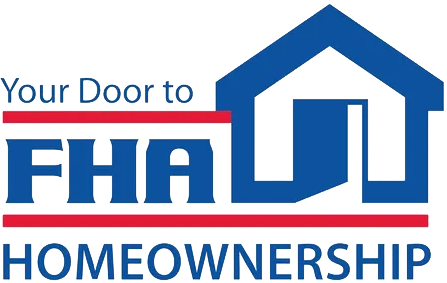FHA Loans
FHA Loans Compared To USDA Loans
While both FHA and USDA loans are designed to help buyers with limited resources, FHA loans offer several distinct advantages over USDA loans that make them a better fit for certain buyers:
USDA Loans
01No Geographic Restrictions
- FHA loans can be used to purchase homes anywhere in the U.S., including urban, suburban, and rural areas.
- USDA loans, on the other hand, are limited to properties located in USDA-designated rural and suburban areas, which may restrict your options.
02Broader Eligibility
- FHA loans have no income caps, allowing more people to qualify regardless of their income level.
- USDA loans are designed for low- to moderate-income buyers, with strict income limits based on household size and location.
03Greater Flexibility in Property Types
- FHA loans allow for the purchase of multi-unit properties (up to 4 units), as long as one unit is owner-occupied.
- USDA loans are typically restricted to single-family homes.
04Lenient Credit Requirements
- FHA loans are known for their low credit score requirements (minimum 580 for a 3.5% down payment).
- While USDA loans also have flexible credit requirements, borrowers with poor or limited credit history may find FHA loans easier to qualify for.
05Down Payment Assistance Options
- FHA loans require a 3.5% down payment, but buyers can use down payment assistance programs to help cover this cost.
- USDA loans don’t require a down payment, but buyers may face stricter underwriting standards, making FHA loans a more accessible option for some.
06No Location-Specific Closing Delays
- USDA loans often take longer to close due to additional review by the USDA office, particularly in busy regions.
- FHA loans are processed directly through approved lenders, leading to faster closings.
07Easier for Non-Primary Residences
- FHA loans can sometimes be used for properties beyond primary residences, such as duplexes where the buyer occupies one unit.
- USDA loans are strictly for primary residences.
FHA loans provide broader access and flexibility compared to USDA loans, making them ideal for buyers in urban areas, those with higher incomes, or those seeking a faster, more straightforward process. For buyers who meet USDA eligibility criteria and are purchasing in qualifying areas, USDA loans may still be a great choice, but FHA loans open doors for more diverse situations.
Get StartedFrequently Asked Questions
An FHA loan is a government-backed mortgage insured by the Federal Housing Administration, designed to help low- to moderate-income borrowers become homeowners.
FHA loans are available to individuals with:
- A credit score of at least 500 (with higher down payments for scores below 580).
- A steady income and employment history.
- A manageable debt-to-income (DTI) ratio, typically below 43%.
FHA loans require as little as:
- 3.5% down for borrowers with a credit score of 580 or higher.
- 10% down for borrowers with a credit score between 500 and 579.
FHA loans can be used for:
- Single-family homes
- Condominiums in FHA-approved developments
- Multi-unit properties (up to 4 units, if one is your primary residence)
- Manufactured or mobile homes on permanent foundations
Yes, FHA loans require:
- Upfront Mortgage Insurance Premium (UFMIP): 1.75% of the loan amount, typically rolled into the loan.
- Annual Mortgage Insurance Premium (MIP): Paid monthly and based on the loan amount, term, and down payment.
Yes, you can use an FHA loan more than once, but it is typically limited to primary residences. To get another FHA loan, your existing loan must be paid off or meet certain requirements.
- 580 or higher: Eligible for a 3.5% down payment.
- 500-579: Eligible with a 10% down payment.
Yes, FHA loans offer refinance options:
- FHA Streamline Refinance: Simplified process for lowering your interest rate or payment.
- FHA Cash-Out Refinance: Allows you to tap into your home’s equity.
- Low down payment requirements.
- Flexible credit score criteria.
- Higher debt-to-income ratio allowance.
- Accessibility for first-time and repeat homebuyers.
FHA loans have maximum loan limits, which vary by county. These limits are based on local housing costs and are updated annually.
Yes, you may qualify for an FHA loan after:
- Chapter 7 bankruptcy: 2 years, with re-established credit.
- Foreclosure: 3 years, with improved financial stability.
The standard DTI ratio for FHA loans is:
- 43% or lower for total debt.
- Exceptions may apply with compensating factors, such as strong savings or high credit scores.
Yes, FHA loans allow gift funds from family members, employers, or charitable organizations to cover part or all of the down payment and closing costs.
No, FHA loans do not have income limits, making them accessible to a wide range of borrowers.
We’ll guide you through the entire process, from understanding eligibility to finding the perfect home. Our team works with trusted lenders to secure the best terms for your FHA loan.
Have More Questions?
Contact us today to learn how FHA loans can help you achieve your dream of homeownership!
Contact Us



